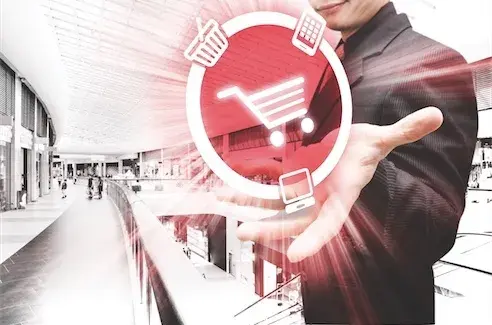Is there a point-of-sale solution for omnichannel retailers?

Online shopping has proven to be a boon to the current world, especially for the generations Y and Z. Today’s customers prefer shopping online as they have lesser time to visit brick and mortar stores and the ease of getting products delivered at their doorstep. Analyzing this trend, many retailers big and small are planning to or have already ventured into the digital space. These retailers must provide a uniform and seamless shopping experience to their customers. Merging offline and online sales is critical and complicated.
Retail businesses must implement a comprehensive retail point-of-sale solution that manages both aspects of the business. While evaluating any solution, retailers must tick off these following features in the software.
1. Integration with omnichannel enabler
As we all know, industry trends are ever-changing. Omnichannel retailing is one of the most recent trends. Retailers that have been in the market since years would not have had implementing omnichannel retail in their business roadmap. Retailers must invest in a POS solution that can be integrated with third-party eCommerce platforms as well as omnichannel retail enablers. Investing in two solutions could prove to be expensive but these solutions are always up-to-date as they accommodate integration possibilities with many applications. Organizations that are just stepping into the retail industry and are planning to implement an omnichannel strategy from day one could invest in a POS solution with an inbuilt omnichannel retail enabler.
2. Inventory tracking
Real-time inventory updates are inevitable in an omnichannel scenario. The inventory counts should be immediately updated when a customer purchases a product at a store’s POS and even when they add the product in their online shopping cart. Similar would be in case of product returns, be it online or in stores. Displaying locations for the availability of a product could be an add-on. An ideal POS solution should have robust inventory tracking and management to provide frictionless customer experience.
3. Purchase point selection
Customers enjoy the flexibility of shopping online. So, modern POS solutions should provide customers with the flexibility of choosing their point of purchase. For instance, some customers prefer purchasing a product online and then picking it up from a nearby store. Some wish to make a purchase in the stores and then get it delivered at their doorstep. Allowing customers to choose their purchase point would ensure great customer experience.
4. Customer loyalty management
Various promotions and discounts are available for customers online and in stores. Managing the customer loyalty aspect could be very chaotic without an adequate POS solution in place. The POS solution should compile all purchase history of a customer across all online and in-store platforms and then customize rewards based on their brand loyalty.
5. Data synchronization
Finally, the POS solution must gather all data collected across channels and analyze them centrally. Also, retailers should have access to data of each store location or platform separately. All this data is pivotal to make certain managerial decisions. POS solutions should generate all relevant reports, measure standard and customized metrics for the business, and help retailers make critical business decisions.
Ginesys provides one of the most reliable POS solutions available in the market that leading omnichannel retailers have implemented in their businesses.





